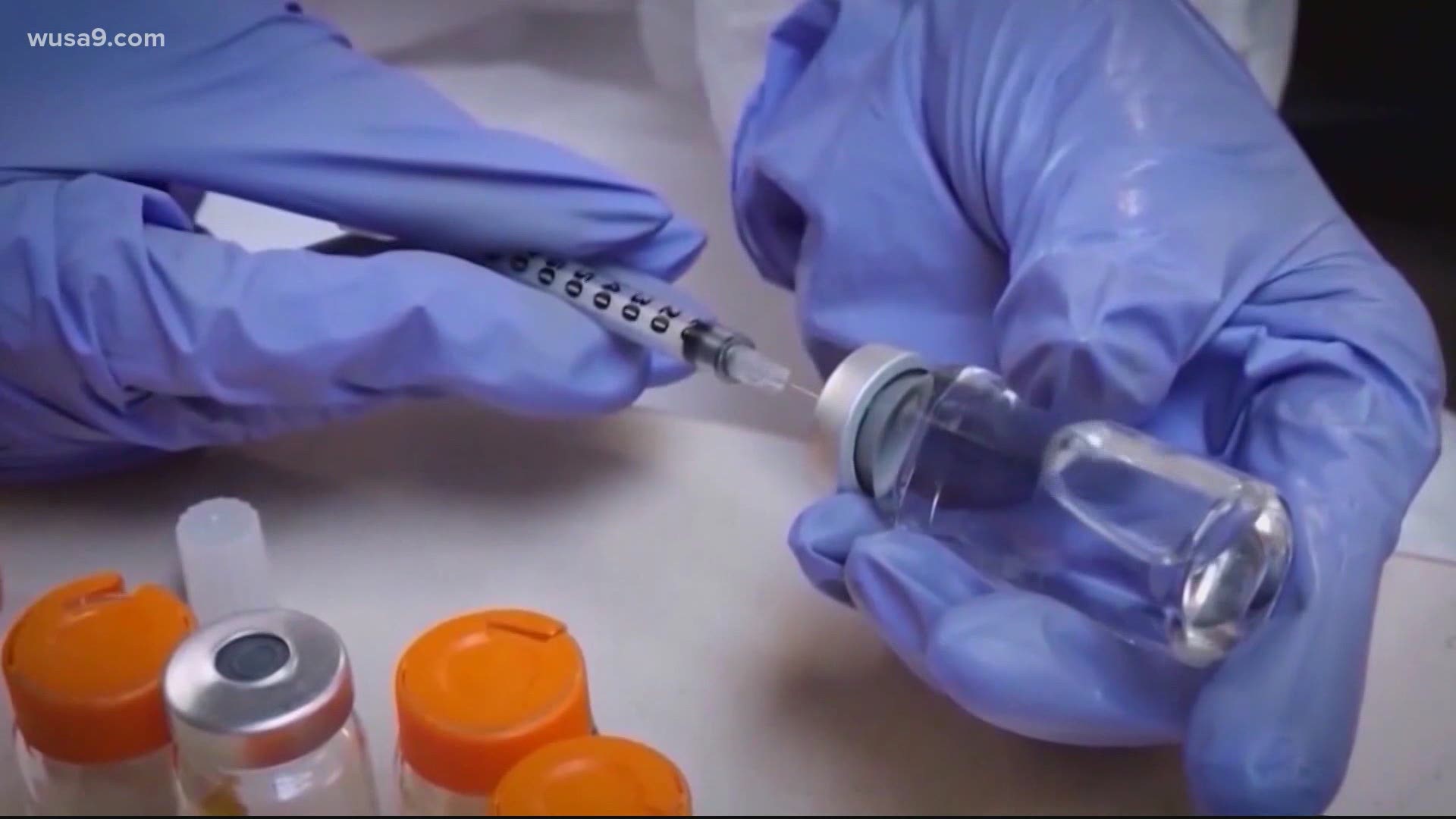WASHINGTON — Long haul COVID, post COVID or what doctors are now calling it: Post-Acute COVID-19.
Whatever name you know it by, this syndrome is affecting a lot more people than you might expect.
The Journal of the American Medical Association found that more than 70% of people who had COVID-19 were still suffering from at least one symptom two months later.
We sat down with Dr. Alba Azola from the Johns Hopkins Post-Acute COVID-19 Team to answer your questions about it.
Q: Are some people more likely than others to experience "long COVID?"
Dr. Azola: "With the long COVID patients, this population are typically healthy, no significant kind of past medical history."
Azola said this is a different group from those who are more likely to be hospitalized with COVID, which tend to be people with comorbidities.
Most long COVID patients were not hospitalized with COVID-19 - and most are women, according to Azola.
Q: How do you know if you have long COVID?
Dr. Azola: "Significant fatigue, exercise intolerance...the person feels that they're very limited in terms of the activity they can do."
For example, Azola said a person may feel muscle pains and extreme exhaustion after minimal exertion, like walking their dog, or have chest pain when they go from sitting to standing.
Azola said she sees a lot of other symptoms too, like headaches and memory loss.
In general, doctors expect COVID symptoms to be gone within four weeks, Azola said.
You may have long COVID if these symptoms persist longer than that.
Q: If you're experiencing these lasting effects, what should you do?
Dr. Azola: "If you're having persistent symptoms after 4 weeks you may consider reaching out to your primary care physician. If you're having symptoms for greater than 3 months, you definitely should seek out help."
Q: What does treatment look like?
Dr. Azola: "We work with the management of symptoms to improve their ability to get back into their lives...It's a complex syndrome that we're managing and we're learning as we go."
Treatment depends on the symptoms a patient is experiencing, Azola said.
The Johns Hopkins Post-Acute COVID-19 Team refers patients who need to improve their conditioning to physical therapy, Azola said. It helps them slowly increase their tolerance to activity.
Doctors refer people experiencing cognitive issues to a neuropsychologist or speech language pathologist, according to Azola. She said those experts can help patients come up with strategies and exercises to get better.
The Johns Hopkins team also works closely with pulmonologists, who focus on the respiratory system, and mental health experts, Azola said.
Azola said the mental toll of dealing with lasting symptoms can trigger anxiety and depression.
Q: Is it true that getting a COVID vaccine can improve symptoms for people experiencing long COVID?
Dr. Azola: "We have seen about a third of patients noting some improvement in symptoms, about a third that feels the same and about a third that may have some flare of symptoms. So the jury's still out. But definitely we have seen a group of patients that have benefited or...the symptoms have become better after receiving the vaccine."
RELATED: Woman who struggled with COVID-19 symptoms for over year says vaccine is bringing some relief
Q: Long COVID can be long and isolating. For people going through this, will it get better?
Dr. Azola: "You're not alone. And even though we don't know exactly how long it takes to get better, we are seeing improvements and people that are able to get back to their lives."
Q: Any advice for people trying to avoid this?
Dr. Azola: "Get vaccinated...Vaccination is slowing down significantly, particularly in young people. And I think people need to step up and understand that it's not only about older, sicker people. People that are completely healthy can also suffer from significant impairments."

